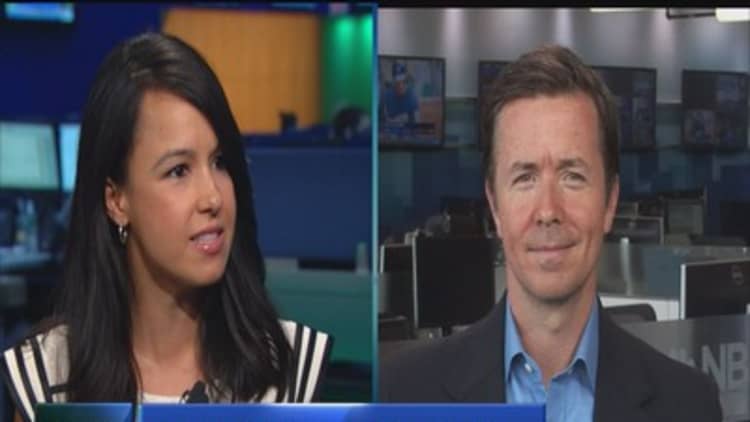
Since the recent launch of Apple Watch, investors have been eagerly watching consumers' reaction to the new wearable. For the most lucrative of buyers, interest may be waning.
According to a new study by MBLM, a brand intimacy agency, millennials are dissatisfied with the watch. Many reported the original thrill of using it began to dissipate after 30 days, with the watch starting to feel like a weak extension of their iPhone. Some even reported feeling guilt over wearing the Apple Watch, saying it was an ostentatious symbol of wealth, while others said the watch is simply frivolous.
Wearables are often notorious for having a high ditch-rate, with some people ditching them after an average of 60 days.
"The initial demand for the Apple Watch looks lackluster," Brian Blair, managing director at Rosenblatt Securities, told CNBC's "Power Lunch" on Friday.
"It's not clear what the killer app is," he said. "It's nice to get notifications, but it's a nonessential product."
Most stores have an abundance of units in stock, Blair noted. "I think many estimates for the calendar year will have to come down."
Read More Singapore greets Apple Watch with a shrug
While the estimated sold units varies thus far, most predictions for the calendar year range from 13 million to 20 million units.
Some argue expectations for the watch could have simply been too high for a brand often associated with releasing products that draw massive crowds, and in some cases, even tents and sleeping bags outside of stores before a launch.
Morgan Stanley recently found that demand for Apple Watch is 20 percent higher than the first generation iPhone. There is, after all, few examples of any new product immediately being massively adopted by consumers.
In a note put out by FBR Capital Markets, Dan Ives said Apple Watch sales are not only strong, with five million units predicted to have sold, but the watch is now a major product catalyst for the entire wearable market.
"Although it remains early innings for Apple in this device category, we believe the next generation of the Apple Watch could potentially help drive further demand growth over the coming years," Ives wrote in a recent note.
FBR predicts the watch could contribute as much as 8 percent of Apple's revenues in fiscal year 2017.


